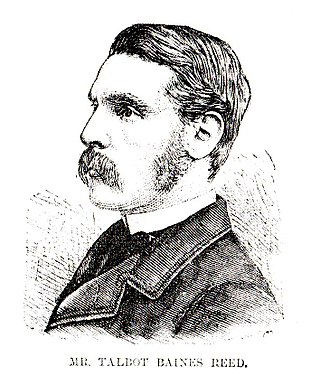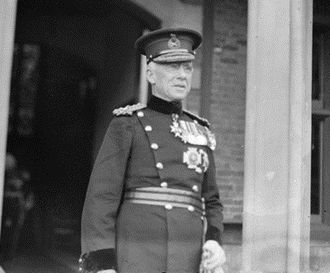Discover Your Roots
SIGN UPDiscover Your Roots
SIGN UPTalbot is a male name of English origin, derived from the combination of "Valley" and "Bold." The name signifies strength and resilience, as well as a connection to nature and the environment. Talbot is also associated with the automobile industry, particularly with the Clément-Talbot brand, which played a significant role in British-French automotive history. The name has a rich heritage, from its inception in 1902 to its ownership by various companies, such as STD Motors and Rootes Group, and its eventual revival by PSA Peugeot Citroën in 1979. Despite facing challenges and changes in ownership, the Talbot marque has left a lasting legacy in the automotive world.

Talbot Nelson Conn "Tolly" Rothwell, OBE (12 November 1916 – 28 February 1981) was an English screenwriter known for his prolific work in the entertainment industry. Born in Bromley, Kent, England, Rothwell's early life encompassed a diverse range of professions, including town clerk, police officer, and Royal Air Force pilot. His writing career took off during his internment in Stalag Luft III as a prisoner of war during World War II. Following the war, Rothwell delved into scriptwriting, contributing to the success of numerous productions such as the hit play "Queen Elizabeth Slept Here" and the famous "Carry On" film series. His contributions to the latter were particularly noteworthy, as he penned scripts for twenty Carry On films, leaving an indelible mark on the series. Rothwell's work was lauded with an OBE in 1977 for his significant contributions to the cinema industry. Despite retiring in the mid-1970s due to illness, his impact endured, evidenced by the enduring popularity of his memorable one-liners, such as "Infamy! Infamy! They've all got it in for me!" Rothwell's legacy as a prominent figure in British entertainment remains influential to this day.

Talbot Mundy, originally named William Lancaster Gribbon, was an English author known for his adventure fiction. Born in Hammersmith, London, he later moved to the United States and adopted the pseudonym Walter Galt. Mundy's literary career took off when he began writing about his life experiences, which led to the publication of his first short story in 1911. His notable works include "King of the Khyber Rifles" and the Jimgrim series, often published in pulp magazines. Throughout his career, Mundy's writing drew upon his experiences in British India and East Africa. He also ventured into journalism and became involved with various religious and philosophical movements, including joining the Christian Science movement and embracing Theosophy. Despite facing financial difficulties during the Great Depression, Mundy continued to write and even ventured into scriptwriting for radio series. He eventually passed away due to complications from diabetes. Mundy's work has been recognized for its influence on later science-fiction and fantasy writers, and he has been the subject of two biographies. Throughout his life, Mundy expressed a positive interest in Asian religion and philosophy and took an anti-colonialist stance, setting him apart from some of his contemporaries.

Talbot Baines Reed (3 April 1852 – 28 November 1893) was an influential English writer celebrated for his establishment of the enduring genre of school stories. His notable work, The Fifth Form at St. Dominic's, remains a classic in the genre. Reed's literary career began in 1879 with his contributions to The Boy's Own Paper, where much of his fiction first appeared. Despite his family's prominent involvement in the Congregational Church and charitable works, Reed did not use his writing as a platform for moralizing. His natural understanding of boys and his talent for creating believable characters contributed to his enduring popularity. Reed's literary contributions extended beyond fiction, as he also wrote regular articles and book reviews for the Leeds Mercury, a newspaper owned by his cousin Edward Baines. In 1881, he became the head of his family's company and went on to write a monumental history of English typefounding, published in 1887. Reed's impactful work and significant contributions to children's fiction and English typefounding were honored in tributes following his untimely death at the age of 41. His family background, which included a lineage of public and religious service, and his early life characterized by hardy outdoor sports, played a significant role in shaping his character and disposition.

Talbot Lanham Jennings (August 25, 1894 – May 30, 1985) was an acclaimed American playwright and screenwriter, known for his notable contributions to cinema, including co-writing the screenplays for Mutiny on the Bounty (1935) and Anna and the King of Siam (1946), which earned him two Academy Award nominations. Born in Shoshone, Idaho, Jennings had a rich educational background, attending Nampa High School and later graduating Phi Beta Kappa from the University of Idaho. He continued his academic pursuits at Harvard University and Yale Drama School.Jennings' prolific career spanned across 17 screenplays, with notable works such as Romeo and Juliet, The Good Earth, and Northwest Passage. His talent also extended to television, where he penned numerous screenplays. His legacy also includes the plays "No More Frontier" (1931) and "This Side of Idolatry" (1933).Throughout his career, Jennings left an indelible mark on the entertainment industry, contributing to a wide array of films such as Marie Antoinette (1938), Scaramouche (1952), and The Sons of Katie Elder (1965). His impact on Hollywood's golden age continues to be celebrated, and his influence on the art of storytelling endures. Talbot Jennings' remarkable talent and dedication to his craft solidify his standing as a revered figure in the history of American cinema.

Lieutenant General Sir Joseph John Talbot Hobbs (24 August 1864 – 21 April 1938) was an Australian architect and First World War general. Hobbs was born in London and emigrated to Western Australia in 1886, where he established an architectural practice and designed numerous public buildings, including the Weld Club and the Perth Masonic Lodge. In addition to his architectural achievements, Hobbs had a distinguished military career. He commanded the 1st Australian Divisional Artillery during World War I and later assumed command of the 5th Australian Division, earning accolades for his leadership and bravery in various battles. Post-war, Hobbs returned to architecture and was renowned for designing war memorials and other significant structures. His legacy lives on through his architectural contributions and his remarkable service to Australia during the war. Unfortunately, Hobbs passed away at sea while en route to the unveiling of the Villers–Bretonneux Australian National Memorial. His dedication to both architecture and the military has left an indelible mark on Australian history.
All images displayed on this page are sourced from Wikipedia or Wikimedia Commons.We use these images under their respective Creative Commons or public domain licenses. Wherever applicable, author attributions and license information are provided. If you believe an image is used incorrectly or outside its license terms, please contact us so that we can review and correct the issue.